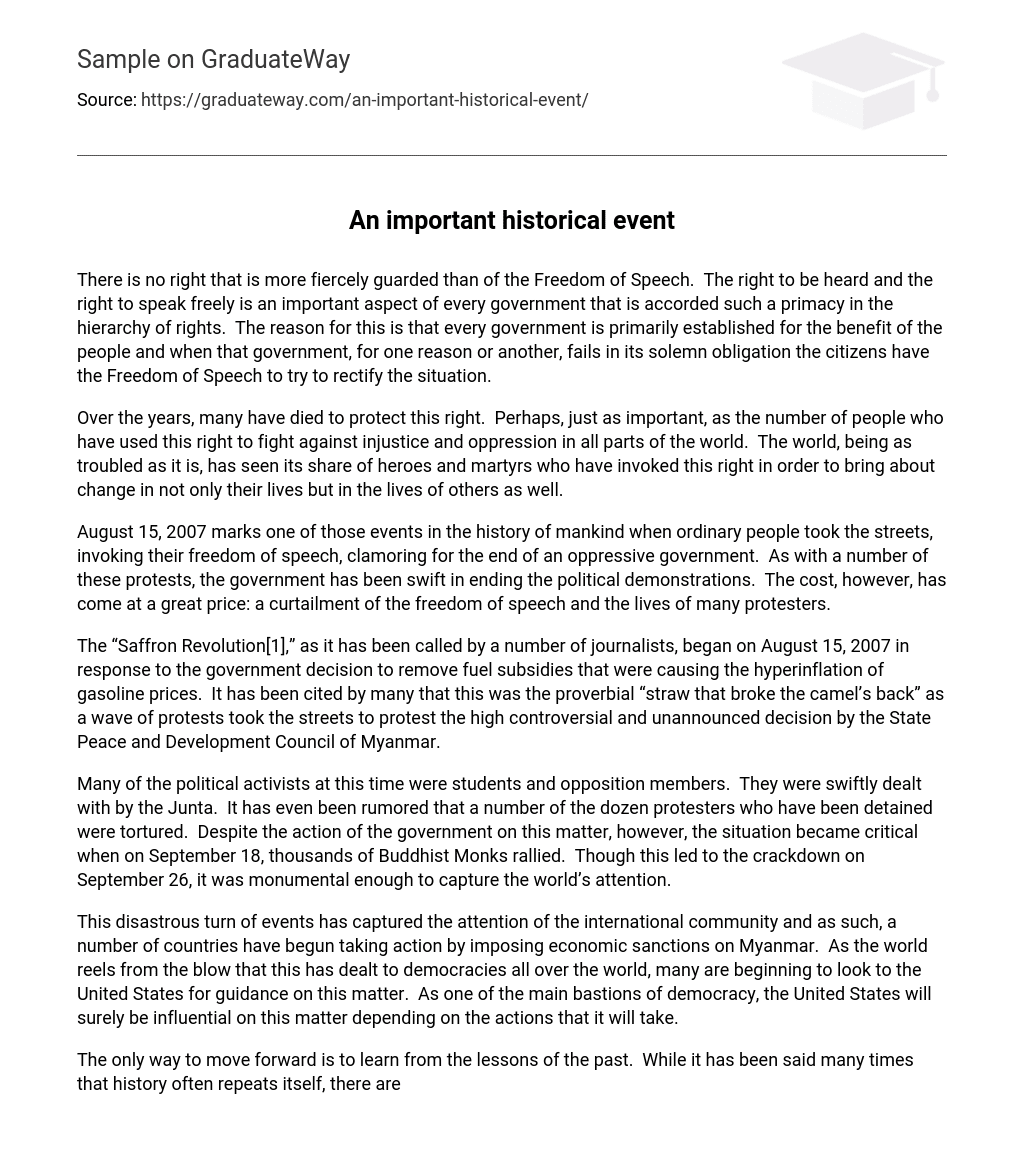There is no right that is more fiercely guarded than of the Freedom of Speech. The right to be heard and the right to speak freely is an important aspect of every government that is accorded such a primacy in the hierarchy of rights. The reason for this is that every government is primarily established for the benefit of the people and when that government, for one reason or another, fails in its solemn obligation the citizens have the Freedom of Speech to try to rectify the situation.
Over the years, many have died to protect this right. Perhaps, just as important, as the number of people who have used this right to fight against injustice and oppression in all parts of the world. The world, being as troubled as it is, has seen its share of heroes and martyrs who have invoked this right in order to bring about change in not only their lives but in the lives of others as well.
August 15, 2007 marks one of those events in the history of mankind when ordinary people took the streets, invoking their freedom of speech, clamoring for the end of an oppressive government. As with a number of these protests, the government has been swift in ending the political demonstrations. The cost, however, has come at a great price: a curtailment of the freedom of speech and the lives of many protesters.
The “Saffron Revolution[1],” as it has been called by a number of journalists, began on August 15, 2007 in response to the government decision to remove fuel subsidies that were causing the hyperinflation of gasoline prices. It has been cited by many that this was the proverbial “straw that broke the camel’s back” as a wave of protests took the streets to protest the high controversial and unannounced decision by the State Peace and Development Council of Myanmar.
Many of the political activists at this time were students and opposition members. They were swiftly dealt with by the Junta. It has even been rumored that a number of the dozen protesters who have been detained were tortured. Despite the action of the government on this matter, however, the situation became critical when on September 18, thousands of Buddhist Monks rallied. Though this led to the crackdown on September 26, it was monumental enough to capture the world’s attention.
This disastrous turn of events has captured the attention of the international community and as such, a number of countries have begun taking action by imposing economic sanctions on Myanmar. As the world reels from the blow that this has dealt to democracies all over the world, many are beginning to look to the United States for guidance on this matter. As one of the main bastions of democracy, the United States will surely be influential on this matter depending on the actions that it will take.
The only way to move forward is to learn from the lessons of the past. While it has been said many times that history often repeats itself, there are those who are never able to learn from the mistakes that others have made. As such, the value of history is in the lessons that one is able to extract from these events and the knowledge that what the future holds is a result of something that has previously occurred.
This is why this historical event is important and must never be forgotten. Nobody can do anything about the present and the future is something that has not yet happened. The past, on the other hand, is something that has happened and is something that one can learn from and build on. Mistakes are never apparent until they have been committed. The only way to learn from these mistakes is to do something about them but they can only be changed in the present.
[1] The term “Saffron Revolution” is in reference to the participation of the Buddhist Monks in the protests. The Saffron colored robes that these monks use is the reason for such a name.





